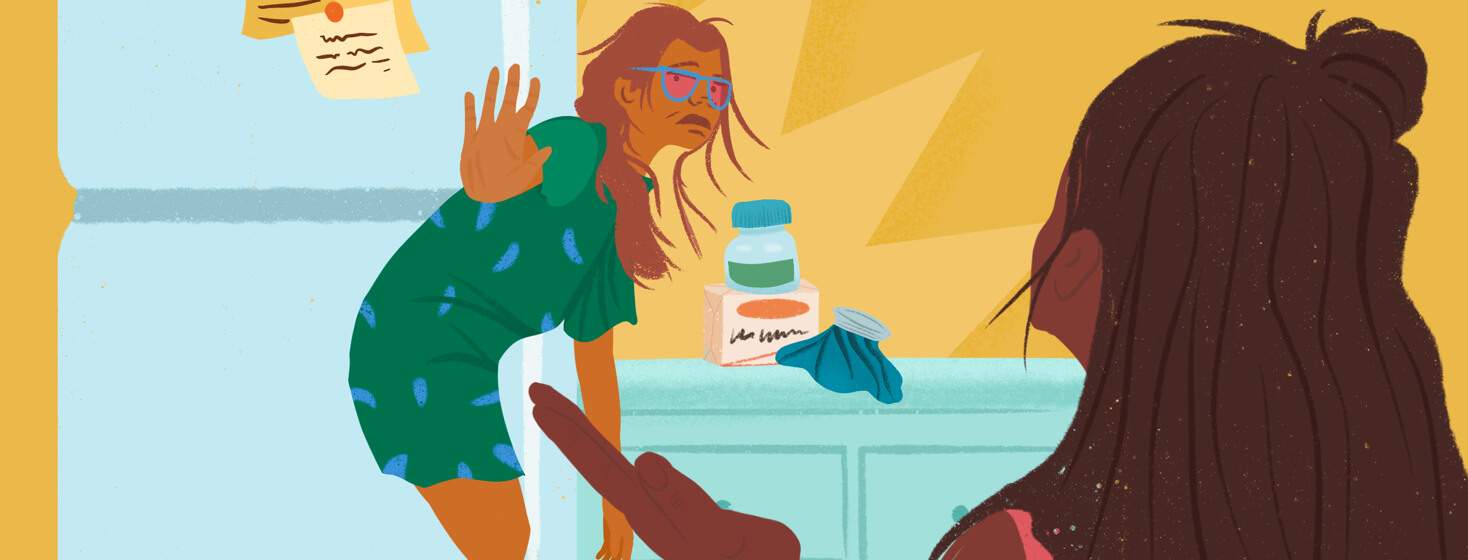Why It’s So Difficult To Ask For Help With Migraines
“I can do it myself, Mom,” my 6-year-old says while I zip up his coat. As my kid searches for more moments to experience his autonomy, this phrase pops up a lot. Allowing him these instances builds his confidence, but he’s also learning his limitations. He seamlessly switches gears and asks for help when he needs it—unlike his mother.
When chronic migraine deprives me of my independence
Asking for help is not my jam. Since I’ve been my son’s age I’ve always enjoyed getting stuff done on my own (unless we’re talking math equations). It can be an undertaking as simple as unloading the dishwasher or as complex as loading the dishwasher. I feel independent and accomplished depending only on myself. But, depending on how my head feels, there are days my chronic migraines deprive me of this experience.
When my migraines first began, I lived alone. If I needed a sip of water or a handful of crackers, the only person around was my cat. She was great with the cuddling but inconsistent when aiding me with foodstuff and ordering pizza. I had to summon the strength to walk the 720 miles from my bedroom to the kitchen to find the staples I needed. I wished for a fairy godmother to appear and bibbity-bobbity-boo me a slice of cheese pizza. Finally, I got my wish. I married a guy willing to help me out, yet I was unwilling to ask.
Struggling to ask for help during a migraine attack
During a migraine, my head may have been throbbing, but my need to feel autonomous stopped me from saying phrases like, “Could you bring me a cracker?” Instead, I’d wander through the house, eyes closed against the sunlight, bumping into couches, finding ways to do it myself. My need to retain my independence ran deep. I was weak under my migraines' spell.
Eventually, my boiling brain became so painful that I had to ask my partner for help. Logically, I knew it wasn’t a weakness to reach out, but emotionally I struggled with the decision. Was I still the independent person I’d worked so hard to become? Was this something else migraines had taken from me, like cold mugs of beer and relaxing spells in hot saunas? How could I feel accomplished when I was depending on my spouse to accomplish so much?
Asking for assistance isn't a weakness but a strength
This question plagued me for years. Then my answer came in the shape of my little son. Over time, I’ve watched my little guy explore his autonomy and interdependence with equal pride. For him, there’s no shame in knowing his limitations. In fact, a request for help brings him more confidence because he’s learning to ask for what he needs. Asking for assistance isn’t a weakness but a strength.
Even though I'm taller, it’s pretty clear who the smarter one is in this relationship. It’s mind-blowing to learn that I can be independent and also ask for help, but I'm working to make this healthier mindset my new jam.

Join the conversation